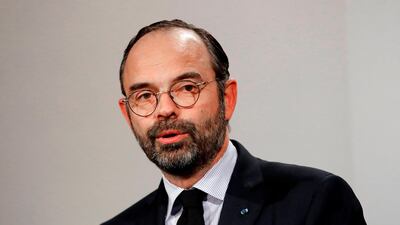Army reservists are to be called up to support government contingency plans for a hard Brexit should the UK crash out of the EU with no deal on March 29.
On Thursday, a defence minister said the move was to ensure the UK was able to handle the potentially devastating impact on its welfare, health, security and economic stability should a fresh agreement not be reached with the EU.
The forces will be on standby from February 10 to support regular units, act in officer liaison roles and reinforce regional points of command. The reserves will also support other government departments putting into place contingency plans.
Defence minister Mark Lancaster said it would be a “coordinated work programme to ensure that there are effective and proportionate contingency plans in place to mitigate the potential immediate impacts leaving the EU, under a ‘no deal’ scenario.”
The government's proposed Brexit deal suffered a devastating, record-breaking defeat in parliament on Tuesday but prime minister Theresa May's government survived a no confidence motion on Wednesday. She is now tasked with reaching out to her members of her Conservative party and opposition officials to find a way to a hammer out a new deal that would be acceptable.
MP Ian Murray, a remainer from the opposition Labour Party, said the decision illustrated the stark dangers faced by a no deal Brexit. “It is staggering that soldiers are being put on standby because of the risk of a constitutional crisis of the government’s own making.”
Meanwhile France has allocated to €50 million (Dh208.81 million) to its ports and airports to help them handle the potential fallout from a no deal Brexit, with prime minister Edouard Philippe saying the scenario was becoming “less and less unlikely.” He described these areas as “the most important places when it comes to imminent changes to be made in the light of no deal Brexit.”
The recruitment of 600 custom officers, veterinarians and other officials are also expected. “Under these conditions, our responsibility is to make sure that our country is ready, that the interests of our citizens are preserved and defended,” Mr Philippe said.
Labour’s Jeremy Corbyn, leader of the opposition, has so far refused to meet with Mrs May to look at Brexit compromises. He has reportedly banned his shadow cabinet from meeting with the government too. Collectively Mr Corbyn’s party and Mrs May hold 88 per cent of the 650 seats in parliament.
_______________
Read more:
Westminster remains a haven for serious exchanges amid the Brexit circus
UAE Britons watch nervously as Brexit threatens their retirement plans
Why Britain’s political crisis will run for weeks
EU letter fails to turn the tide for Theresa May's Brexit deal
_______________
“I say to the prime minister again: I am quite happy to talk, but the starting point for any talks about Brexit must be that the threat of a disastrous no-deal outcome is ruled out,” Mr Corbyn told a crowd in the seaside town of Hastings.
Mrs May spent the day holding cross-party talks as it was announced MPs will debate the government’s next Brexit steps on January 29. Mrs May has so far made no suggestion she would delay the March 29 deadline to leave the EU, despite business leaders, some MPs and European officials urging her to do so.

